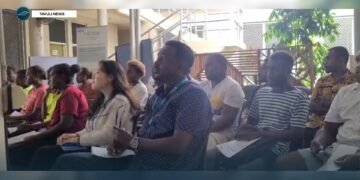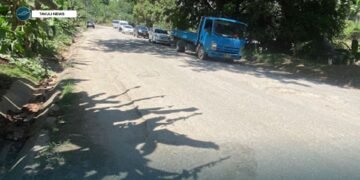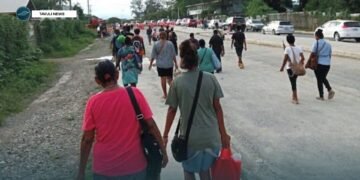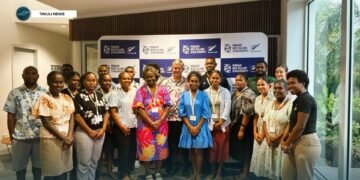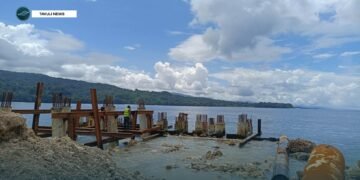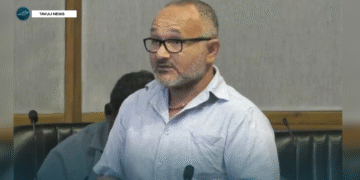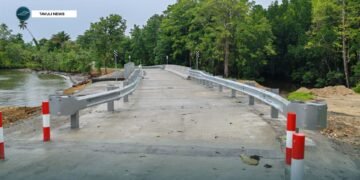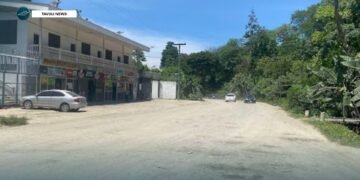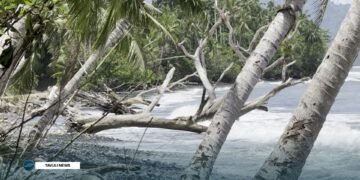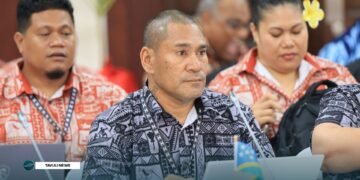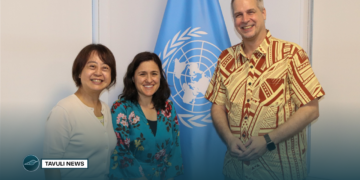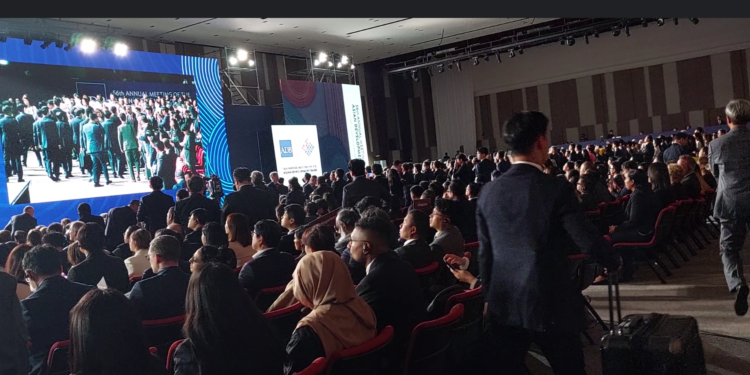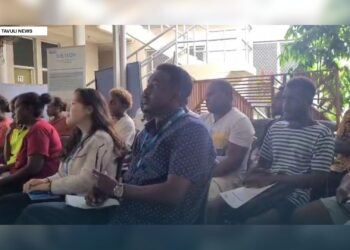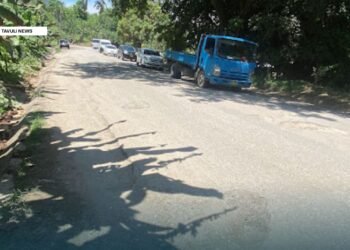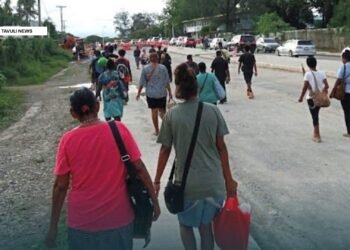Climate change remains the country’s greatest threat, says Head of the Solomon Islands delegation to the 56th Annual meeting in Seoul, Dr. Luke Forau. Dr. Luke Forau who is the Governor of the Central Bank of Solomon Islands led a two (2) man team to the ADB Board of Governors meeting in Incheon, Seoul. Forau told Tavuli News that the climate change risk is real and Pacific Island countries are calling for more support from ADB in climate finance adaptation. ‘All the member countries in the Pacific came out strongly to talk about this during our meeting and said that they want more support in climate finance adaptation and resilience’, Forau said. The adverse weather conditions are causing much damage to Pacific Island countries’ economies. In Solomon Islands, the population growth rate is higher than the economic growth rate and frequent adverse weather events are impediments to the development of the country. With limited infrastructure and lack of social services support for its population, the country faces debt risks in the near future. In Fiji, the government’s debt to GDP has risen to 90 percent during the pandemic while Vanuatu has suffered great damages from the impacts of cyclones Judy and Kevin in the recent months. Forau said the Pacific Island members are requesting that ADB also consider giving out grants rather than loans. He said small Pacific island states with low carbon gas emissions are suffering the consequences of climate change which are not of their making.
Meanwhile ADB this week launched its new Finance Facility program called IF-CAP. ADB President, Mr. Masatsugu Asakawa, says the Innovative Finance Facility for Climate in Asia and the Pacific, IF-CAP is a global first in its scale and scope and will transform climate finance in two ways. “First, IF-CAP will change the way we do business. The region needs trillions in investment to combat climate change. To help reach that level, we need to maximize our capital in new ways. IF- CAP will multiply ADB’s lending capacity through leverage. This will allow us to crowd in substantially more resources from the private sector, and other investors who share our commitment to climate action”, Asakawa said. “The program is based on the use of financial guarantees from our partners. By guaranteeing a portfolio of ADB’s sovereign loans, they will help to shoulder some of the loss in case of a credit event in one of our borrowers. This is a groundbreaking arrangement because it will reduce the capital ADB needs to hold for credit risk, freeing up capital for a substantial increase in lending to climate projects. Every dollar of guarantee into IF-CAP will result in the capacity to make new loans”, Asakawa said. He said secondly, IF-CAP will change the way climate change is addressed. “Climate change demands innovative and all-encompassing solutions. IF-CAP will provide this, it will be the first ADB financing vehicle to serve as a one-stop shop for climate finance. This will make climate action across sectors and regions possible. And it will support both infrastructure and reforms that address climate changes issues”. In October 2021, ADB committed to elevating its ambition to $100 billion in cumulative climate financing from its own resources to its DMCs for the period 2019-2030. Investment in all developing countries for climate mitigation is estimated to be between $140 billion to $175 billion per year by 2030. Climate adaptation cost estimates for Asia and the Pacific are in the order of $40 billion per year between now and 2050. ADB has 68 member countries. 49 of the members are from the Asia Pacific Region.

